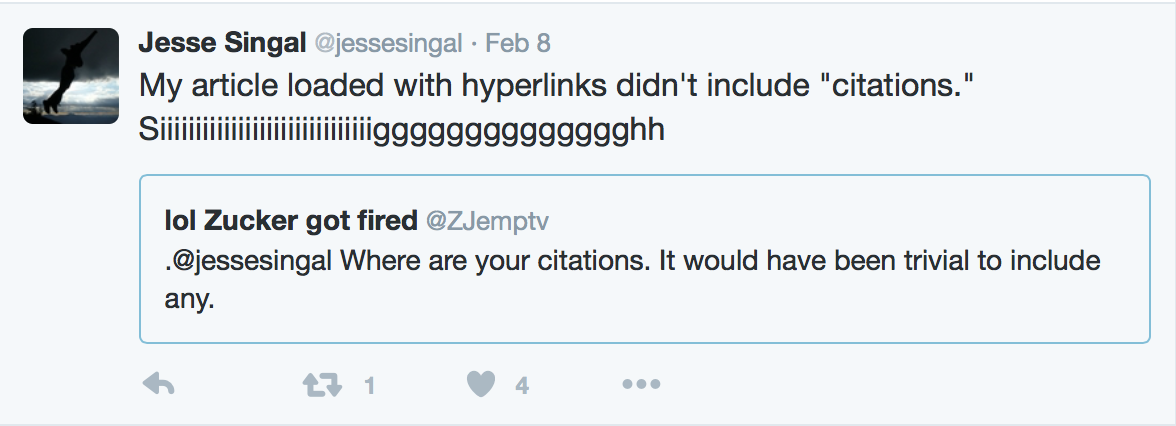Peggy Orenstein was on Fresh Air yesterday; it was a great conversation.
Author Peggy Orenstein says that when it comes to sexuality, girls today are receiving mixed messages. Girls hear that “they’re supposed to be sexy, they’re supposed to perform sexually for boys,” Orenstein tells Fresh Air’s Terry Gross, “but that their sexual pleasure is unspoken.”
While researching her new book, Girls & Sex, Orenstein spoke with more than 70 young women between the ages of 15 and 20 about their attitudes and early experiences with the full range of physical intimacy.
She says that pop culture and pornography sexualize young women by creating undue pressure to look and act sexy. These pressures affect both the sexual expectations that girls put on themselves and the expectations boys project onto them.
Orenstein adds that girls she spoke to were often navigating between being considered “slutty” or a “prude,” and that their own desires were often lost in the shuffle. Girls, Orenstein says, are being taught to please their partners without regard to their own desires.
Astonishing, isn’t it, when we already live in a world where equality between women and men is firmly established?
I jest, of course.
There’s a transcript.
GROSS: So if the princess was the pop-culture symbol that you were concerned about when your daughter was very young, what would you say is the pop-culture symbol now that concerns you now that your daughter is reaching her teens? And are there any particular pop stars or celebrities that you’re concerned are offering an image that girls are trying to emulate and maybe it’s not a great idea?
ORENSTEIN: You know, there are great pop stars and there are pop stars that I have concerns about. And one of the kind of fun things about doing the reporting with this book was arguing back and forth with the girls about whether the kind of image of hot that was being sold to them was transgressive or whether it was liberating. And I guess, you know, right now I’d say the person who embodies that and who drives the older generation that I guess I’m part of – crazy – is Kim Kardashian. And it was really interesting to me to watch the recent release she did on International Women’s Day of her nude selfies. I don’t know if you paid attention to that. But what was interesting to me was that there was this argument over whether Kim was a feminist or Kim was a slut. And I kept watching that and thinking, you know, why are those the only two options? And she would talk about – in her defense she would say, I’m proud of my body and I’m expressing my sexuality. And those two lines were lines that I heard from girls a lot. And I was really taken by them because I kept thinking – you know, when a girl would show me a picture of herself dressed in the crop top and the – I started calling it the sorority girl uniform, the crop top and the little skirt and the high heels – and she would say, I’m proud of my body. And then a few minutes later she would say but if she gained a few pounds she would no longer want to dress like that because she’d be afraid that if she went to a party that some boys would called her what she said was, you know, the fat girl. And I started thinking, well, proud of your body but who gets to be proud of which body under what circumstances? And how liberating is it if humiliation lurks right around the corner? And that idea of hot, that idea that we [are] our bodies and that how our bodies look to other people is more important than how they feel to ourselves is something that an earlier generation might have protested against. But today’s generation is sold that as a form of personal empowerment and confidence. But because it’s so disconnected from actual feeling within their body, I found that often for girls the confidence came off with their clothes.
I just cannot, for the life of me, see how thinking how our bodies look to other people is more important than how they feel to ourselves is empowering. Cannot do it. Being needy isn’t empowering. Seeking constant validation isn’t empowering. Being an object for others to look at isn’t empowering.
GROSS: Your book opens after the introduction with clothing and school. And there’s a scene where the dean of a high school is telling the girl students not to dress in short shorts and tank tops or cropped tops and that they had to dress with more self-respect and wear clothes that their grandmothers would be comfortable with…
ORENSTEIN: Right.
GROSS: …When it comes to dressing for school. And you were talking to a girl – a girl’s telling you this story. You weren’t there when it happened. She’s telling you the story. And she’s telling you about how she stood up in the auditorium and objected to what the dean said. What were her grounds for objection?
ORENSTEIN: Yeah, so that’s Camilla (ph), and she stood up and she – because she had learned in this very school system – this was a very liberal school system – to be an upstander. So she went up in front of the whole auditorium and said, I’m a 12th-grader, and I think what you just said is not OK and it’s extremely sexist and it’s promoting rape culture and if I want to wear a tank top and shorts because it’s hot, I should be able to do that. And that has, you know, no correlation with how much respect I hold for myself, and you’re just blaming the victim. Everybody cheered in the auditorium, and then she, you know, dropped the mic and she headed back to her seat. And he said, thank you, Camilla, I totally agree, but there’s a time and a place for that kind of clothing. And she was so furious because she said, look, it doesn’t matter what I wear to school. I’m going to get cat-called no matter what. It doesn’t matter what I wear. When I get up to sharpen a pencil, I’m going to get a comment on my butt. And, you know, I cannot help my body type. This is who I am, and you don’t see boys having to deal with this. Boys aren’t walking down the hall with girls going, hey, boy, nice calves, you know? This is something – she said it’s distracting to me to be cat-called. That really affected me, and I thought, you know, we have to teach boys that it is not their right to say things about girls’ bodies, to say things about girls’ clothing, it is not their right to touch girls. And if we don’t start teaching them at that level, how can we expect them not to feel entitlement, you know, down the road at something more extreme?
GROSS: So I don’t mean to sound prudish here, but at the same time, there’s a certain type of clothing that is designed to be provocative. Like, that’s the point of it.
ORENSTEIN: Yes.
GROSS: Like, if you want to stay cool in hot weather, you could just wear a sleeveless shirt. It doesn’t have to show a lot of cleavage, it doesn’t have to show your naval with a piercing on it.
ORENSTEIN: Right, I agree. And that’s why you have to ask, you know, what is it that girls are being sold and why are they being sold this? So it’s a kind of – it’s complicated and it’s both sides. So she, for instance, went to school one day, she told me just right before we spoke, wearing a bustier. And she was thinking, oh, I look hot today. I’m going to have a great day. Which right there I thought, you know, well, why is that your measure of a great day? And then she goes into school and she realizes, uh-oh, everybody’s looking at me and everybody’s cat-calling – although she changed it. She was talking about herself in the first person and suddenly she shifted and said everybody’s looking at you, everybody’s making comments. And I thought, isn’t that interesting that when she gets to that objectified point, she starts seeing herself from the outside too.
It’s complicated, but it’s also wanting to have it both ways. Apparently Camilla wants not to be cat-called, but she also wants to wear a bustier to school thinking, oh, I look hot today. You can’t really do both, at least I’ve never been able to figure out how anyone can do that. If you wear a bustier in order to look hot – don’t you want to be cat-called? Or at least stared at with mute longing?
GROSS: I want to get back to, like, pop-culture symbols and what they’re teaching girls. You know, in so much pop music today, the girl stars or young women stars or women stars are wearing, you know, basically S and M fetish garb. You know, like…
ORENSTEIN: I know.
GROSS: Yeah, like, you know, bustiers or, you know, really tight leather revealing things with, like, high boots. I mean, they might as well have a whip, you know what I mean?
(LAUGHTER)
GROSS: It’s just like the dominatrix look. And shouldn’t you be able to, like, be a good musician and not dress like you’re a dominatrix? Give me some guidance of how to talk about that without sounding like you’re a total prude who is not aware of what pop culture means because I just think there has to be a way of talking about this without…
ORENSTEIN: I know.
GROSS: Yeah.
ORENSTEIN: It’s really hard, right? It’s really complicated, and it’s designed that way. It’s designed to make you sound old and out of touch and prude and your daughter feel like she’s expressing some kind of liberation and confidence. And when you say, like, can’t you just be a musician? Even when you look back 20, 30 years at musicians in the ’80s – like, if you look at Joan Jett or you look at – they’re pretty clothed. I mean, it’s pretty interesting that they’re still, you know, you think of them as having been very sexy stars but – you know, Annie Lennox, whatever – they had a broader range. And we do still have, you know, now Lorde or Adele or there – you know, there’s a few stars like that. But I think what’s hard about it is that this idea of hot – and that’s what they’re selling – is so narrow and so commercialized and so linked with porn, frankly. And it says over and over that first and foremost, you are your body. And first and foremost, you are presenting that body in a way that is sexually appealing to others. And I think one of the big disconnects, and I was exploring this in Cinderella too – “Cinderella Ate My Daughter” – that when girls are constantly acting out sexy from a really young age, they don’t connect that to their actual sexual development from the inside. And the risk is that that disconnect becomes permanent. And we do know over and over that, you know, self-objectification, self-sexualization is really unhealthy for girls. You know, there’s research stretching back for decades that shows that affects them cognitively. It affects their mental health. And we know too that even in the sexual realm, that girls who are self-objectifyng, girls who are constantly conscious of their bodies, actually report less pleasure, less (unintelligible), less ability to talk to their partners than girls that are not. So they’re really being sold a bill of goods to a great degree. And I don’t think that that’s prude to say because, you know, if you’re interested in their sexual pleasure and you’re interested in their expressing power, they’re not going to get there that way.
I don’t think I’d heard that word “self-0bjectification” before and I think it’s very useful. What she says sounds right to me. It sounds right if only because one can’t do everything, and if you’re spending a lot of your time and energy on looking hot to other people, you’re not spending it on other things, things which might be more broadly rewarding.
GROSS: So when you think about the sexual climate that you lived in when you became a teenager and you compare that to the climate your daughter is entering as she’s about to turn 13, how do they compare? Do you think the issues are any different? Do you think the pressures are any different?
ORENSTEIN: It’s so interesting. I mean, on one hand I want to say if they’re not, why aren’t they? When so much has changed for girls in the public realm, where so much has changed for them educationally, where so much has changed in their professional aspirations, why hasn’t much more changed in the private realm? At the same time, there’s a weird way where I feel I came of age in this kind of post-our-bodies-our-selves time. There was, among a certain population that I was part of, a sort of sense political duty that we deserved equality in the bedroom and a sense among the boys that we were with that they were in it with us. I feel that that – for that same kind of demographic has really not, you know, completely transformed -obviously, that’s still there – but has changed a lot. And I think a lot of it is because we’ve had a much more aggressive and much more relentless popular culture and porn culture that tells girls that they’re supposed to be sexy, that they’re supposed to perform sexuality for boys, but that their sexual pleasure is unspoken of.
That. I think it’s depressing as fuck.






